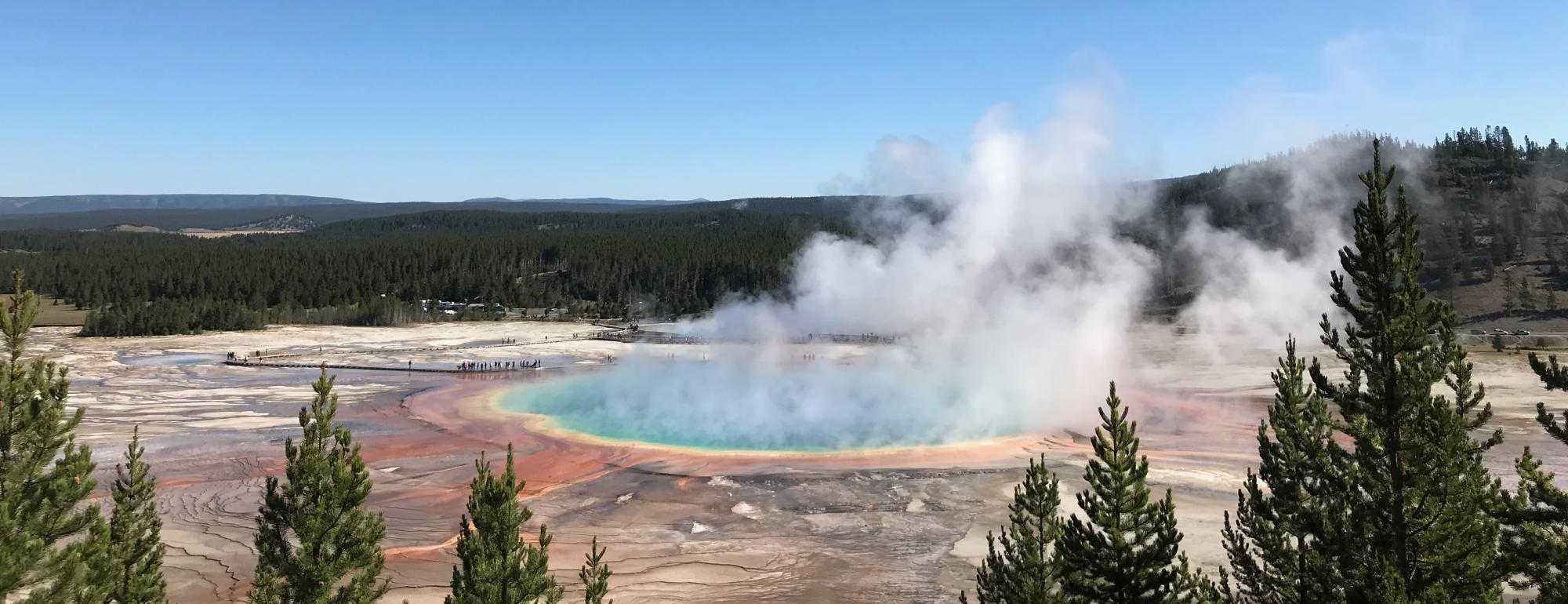Engaging in undergraduate research or a senior thesis is an excellent way to pursue a particular interest in depth that might not be available in a particular course. Students may find themselves helping with experiments in the lab, data collection in the field, literature reviews in the library, or other creative projects. With any of these projects, students will work under a faculty member, and closely with the other graduate students, postdocs, research scientists, and other undergraduates in the lab. Participating in undergraduate research is invaluable in helping students choose the direction their careers will take. It can help students engage in the scientific process, apply classroom learning to the real world, and gain scientific experience and transferable skills for careers or graduate school.
Research Opportunities
Students who participate in undergraduate research with a faculty member in Earth and Planetary Sciences may register for units – GEL 99 for lower division students or GEL 199 for upper division students. GEL 199 can be counted toward the Geology major (see the catalog for unit limitations). For every 3 hours spent per week on research, the student earns 1 unit.
Senior Thesis and Senior Honors Thesis
Students interested in expanding their undergraduate research into an independent, longer-term project may be interested in doing a Senior Thesis. A Senior Thesis (GEL 194A-B) or Senior Honors Thesis (GEL 194HA-HB) is a two-quarter sequence of courses for a total of 6 units. At the end of two quarters, students receive a grade for both classes. A Senior Thesis or Senior Honors Thesis is open to students who have completed 135 units; an honors thesis also requires that a student’s GPA is at least 3.5 before registering.
Many students spend the first class on research, literature reviews, experiments, or fieldwork, and the second class on writing the final paper - although this can be broken down however is needed for the particular project. The grade for both classes is given based on the quality of the final paper. Work with your thesis advisor before registering for the class to determine the length and expectations of the final paper. Some students do initial research in the form of a GEL 199 before the senior thesis, although this is not required or expected.
A senior thesis is like a smaller version of a Master’s thesis or PhD dissertation, so it provides excellent preparation for graduate school.
If you want to do a thesis or research, don't wait until your senior year to start looking or working. Find a mentor early, and give yourself plenty of time to work on projects. this will give you time to work through difficulties, write a better thesis, and maybe even get published." -Geology major, 2016
Undergraduate Research Center
The Undergraduate Research Center provides advice, help getting started in research, funding, and a chance to present your research at the Undergraduate Research Conference each April. We strongly encourage students doing research or a senior thesis to present their work at the conference as either a talk or a poster.
Advice
Finding a position in a research lab often means asking the professor directly if they have space and projects for undergraduates. This can be intimidating, so here is some advice:
- Find the faculty member you would like to work with using the list of faculty in Earth and Planetary Sciences. Read about their research areas on their website.
- Visit them at office hours or write an email to introduce yourself. You will want your email or conversation to be professional, succinct, and clear about what you are asking. You should let them know your name and year in school, and a little about your background (for example, what are you interested in learning more about?). It helps to let them know you’ve read about their work online so that it’s clear you are not sending a generic message.
- Blog: 8 Tips to Ask a Professor to Be Your Mentor
- Blog: Finding Undergraduate Research Internships
- The Transfer Research Society at UC Davis is a dedicated space for transfer students to find support in securing research positions
Becoming a researcher is different from taking a class for a grade. As part of a research team you will be expected to develop a level of responsibility and independence appropriate to the position. As with any job, you are expected to arrive on time and communicate closely with your project supervisor. Research can offer experience, skills, mentorship, networking, and recommendations for future jobs or graduate and professional school. It is important to commit to work hard in any role you accept. Please read Demystifying Undergraduate Research Experiences by UC Davis Ecology PhD student and Coastal and Marine Sciences Institute Lead Mentor Priya Shukla.
You can also talk with your research mentor about opportunities such as funding, travel to professional conferences, and getting published.
Funding
The Department of Earth and Planetary Sciences, campus as a whole, and external agencies all provide funding for research supplies and travel to professional conferences. Your research mentor should help guide you in finding and completing applications for research funding. Find a list of additional funding opportunities at Geology Honors, Scholarships & Awards.
It is UC Davis Earth and Planetary Sciences Department policy that paid research, senior thesis, or internship positions can also give unit credit.


